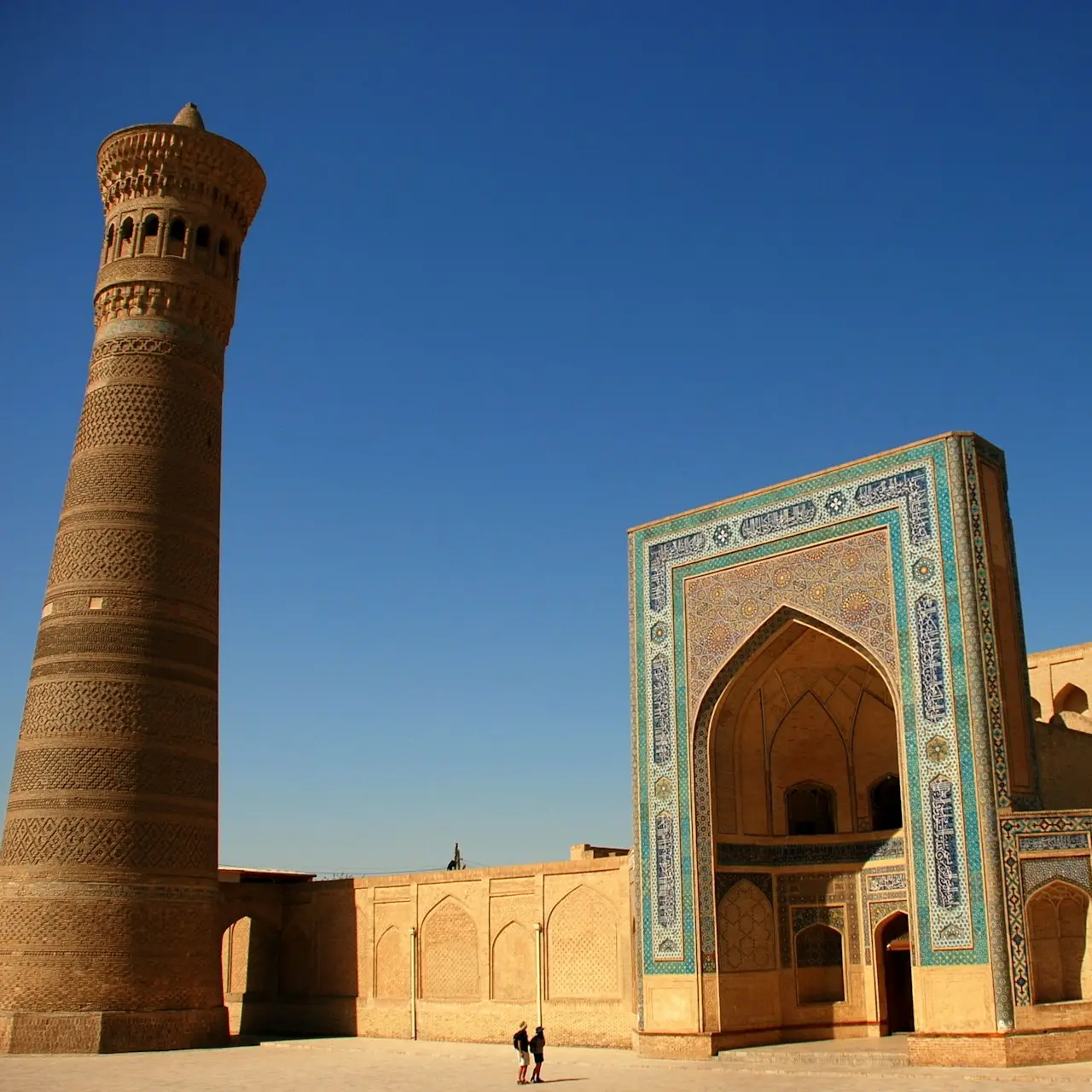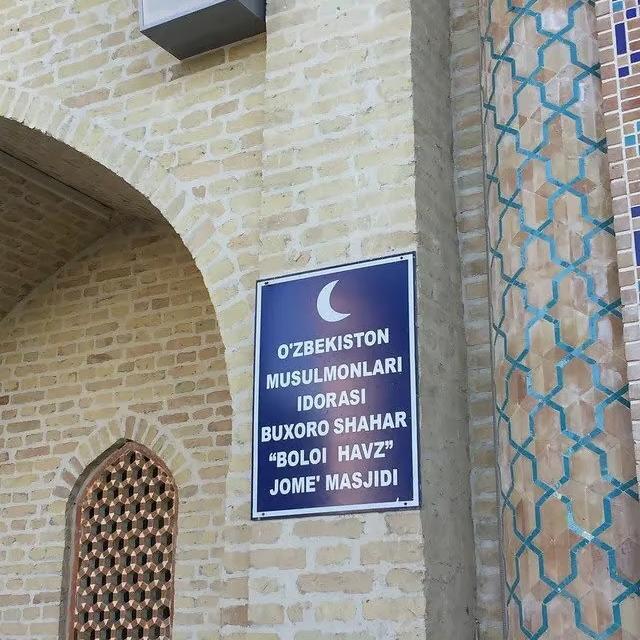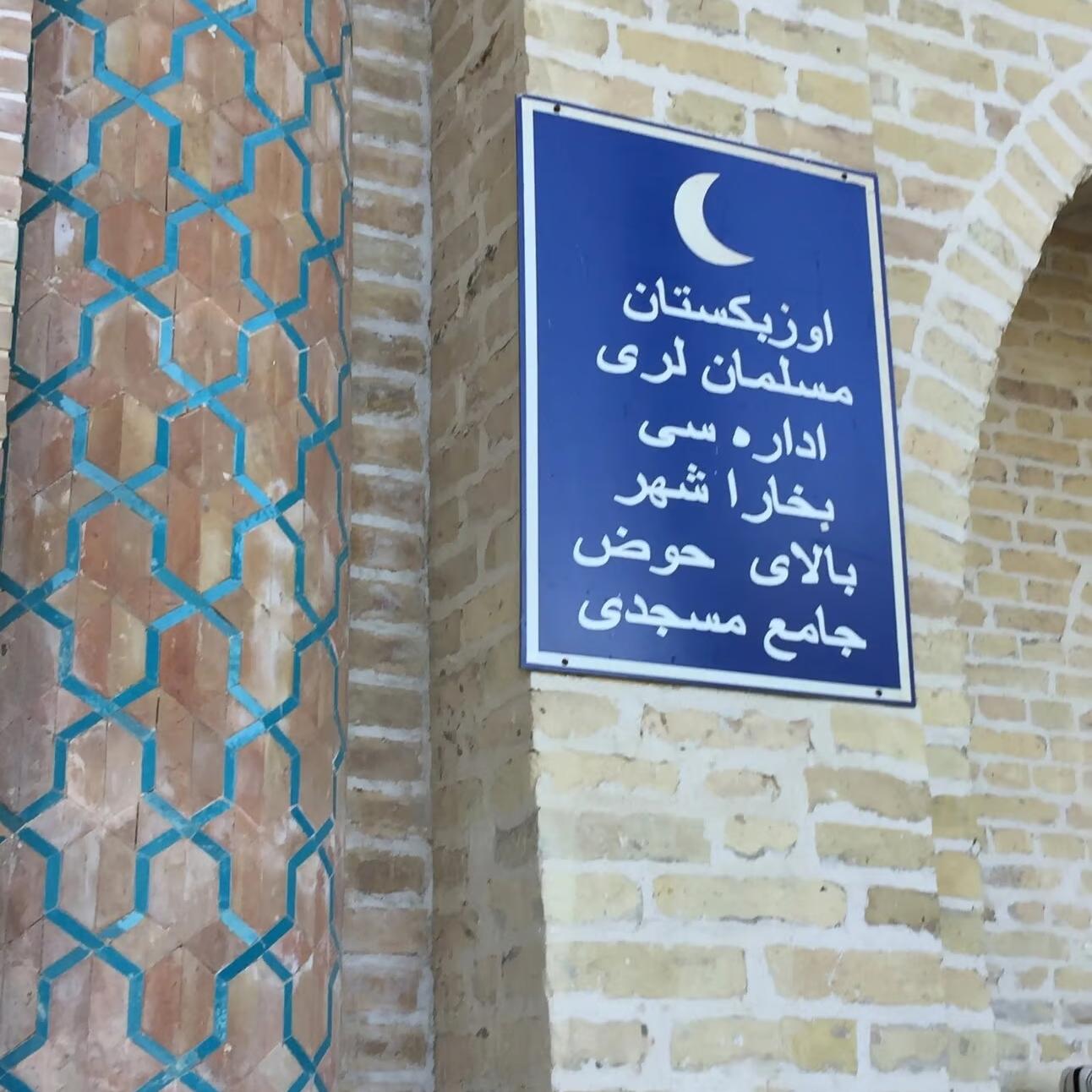Uzbekistan: a small Tajik phrasebook for linguistic adventurers
This article was originally published on Medium on April 27, 2020.

Language freaks know. It is better to know the linguistic minorities of the country we visit than when those ruins date back to.
For our community, travelling, exploring cities and sightseeing get a whole different flavour when we can use the local language.
The optimal solution is to be able to use it throughout the whole journey, so that the weeks or the months before the departure actually turn out to be super-intensive language crash courses where you try to absorb as much information as possible in order to get ready for your destination.
Many of us are probably not able to reach their desired result, but we are definitely not giving up so quickly not to grasp some basics or at least collecting sample words and phrases on the spot.
And when we use it, we get a spike in adrenaline that is hard to forget.
When we come back, our adventures are those moments that stick most in our minds, so vividly that we live through them every time we tell them.
Unfortunately, when I went to I did not speak the official idiom, but this is definitely what happened to me in Uzbekistan in 2017.


Authority of the Uzbekistan Muslims — Friday Mosque of Bukhara, “Boloi Havz” (“Over the pond”, because there is actually a small pond in front of it)
I went there on a group tour and at a certain point we stopped in Bukhara. It was September, but it was still quite hot, so during the warmest hours of the day we had some spare time to rest in our rooms
While I was there, I was thinking:
Gosh, I am in Bukhara, people speak Tajik here…I cannot miss this opportunity!
For the records/1, I speak A bit of Persian (Iranian variety) and in that year I had spent three wonderful months in Moscow for a university internship — my Russian skills still proved to be pretty useful and were not as rusty as they are now.
For the records/2, in Bukhara and Samarkand the most widely used language is Tajik Persian, that is pretty weird compared to the Iranian one, due to its isolation. It is not an officially recognised language.
So, I got up from the bed, took my courage in my hands, prepared a list of words on a piece of paper and went down to the hotel hall
At first, I was wandering around trying to appear especially interested in the lamps of the place, not to show too much that I was blatantly eavesdropping to recognise the language used by the receptionists with each other.
After some seconds, I was there, ready for action.
The reception area was clean, the receptionists were comprehensibly a bit bored…and I got closer until when I asked them — shamefully in English because I was afraid of making a mess in Russian:
Excuse me, do you speak Tajik?
And then, the magic happened.
Eyes wide open, they replied positively!
In a peculiar mix of Russian, English and Persian (the latest of which I would not really say that was that useful), I tried to fill out the translations on my piece of paper and I cannot really describe the excitement when I came back to my room with my eighteen-sentence long trophy.
Since I was sort of aware that in Samarkand the language was quite different, I did the same there, but in a more “normal” way, just asking our tourleader for the translations.
The results follow below.
B = Bukhari Tajik; S = Samarkandi Tajik; P = Iranian Persian
1) Do you speak Russian?
B: shumo rusi zabân mezaned?
S: orusi gap zada metoni mi?
P: rusi sohbat mikonid?
I found particularly interesting the o at the beginning of orusi in S. and the very Turkic mi at the end. Gap zadan exists in Persian as well, but means to chat, while this use above can be found in Dari Persian too.
2) How much does it cost?
B: chand pul meistod?
S: chand pul?
P: gheymatesh chande?
Iranian Persian is the only variety using the Arabic gheymat, instead of the Persian pul.
3) How are you?
B: akhvâl shuma chto?
S: chto shumo?/chto tu?
P: ahvâle shomâ chetore?
This is probably the expression that sounds the closest in the three languages, beyond “I understand”. I find notable that in S. there is no verb, I guess it is a Turkic influx.
4) I understand
B: mefahmom
S: mefahmam
P: mifahmam
The pronunciation of the prefix mi as me is close to Dari and Eastern Iranian accents (here you can find a quick and interesting video comparing official Persian and the accent from the city of Mashhad).
5) Goodbye
B: sogh bâshed
S: naghz moned
P: khodâ hâfez (the closest expression is ‘khosh bâshid’, but it has a different use)
This is very interesting. On the one hand you have sogh, that is very Turkic, whereas on the other hand we have naghz, which is a beautifully Persian antiquate word. Both B. and S. mean “stay healthy, stay well”, while Persian wishes you to be protected by God.
6) Nice to meet you
B: shimâye didagen ba khorsand mam/didâri shomâ khorsand mam
S: shimoya shenos shodagen ba khorsand mam
P: az âshnâiye shomâ khoshvaghtam/az didâre shomâ khoshvaghtam
They both use khorsand, which is very Persian. The pronunciation and the weird use of what look like a plural past participle is notable (didagen, shenos shodagen). Ba is Persian, but used in the Turkish fashion as a postposition — love it!
7) Where are you from?
B: ogujo shumo?
S: =
P: ahle kojâ hastid?
Once again this o appearing at the beginning of word is particular, like in orusi at point 1.
8) Yes/No
B: ha/ney
S: =
P: bale/na
Ney is just like in Dari.
9) Correct
B: hamto/tovre
S: hamto/toghri
P: dorost
I think that those tovre/toghri are related with Turkish doğru.
10) Thank you
B: rahmat/tashakor
S: =
P: mamnun
Rahmat is likely to have come from the Turkic languages around, while tashakor is closer to the Persian way of speaking, since it is used in Dari as well — and in Iranian Persian, but in a different way. In all the cases, they are Arabic loanwords.
11) You’re welcome
B: iltimos
S: =
P: khahesh mikonam
Also iltimos is common in other Central Asian languages (from Arabic).
12) Excuse me
B: mebakhshen
S: mebakhshen/mebakhsha (informal), uzur
P: bebakhshid
Another expression that is pretty Persian, close to the Dari accent — except for that Arabic uzur!
13) Please
B: iltimos
S: =
P: lotfan
Do we have enough Arabic loanwords? Ahaha…
14) How do you say…in Tajik?
B: chi guyem tojiki ba?
S: tojiki be chi meshud?
P: be fârsi chi mishe/mishavad?
All is Persian, except again the preposition be/ba used as postposition.
15) My name is…
B: mana nomam…
S: =
P: esmam…ast
The Tajiks use more Persian (nom) than the Persians who use the Arabic esm…!
16) I’m from…
B: man az Bukhoro hastom
S: man a Samarqand
P: man ahle…hastam
In this case, B. is really understandable as a foreign Persian speaker, while I keep being surprised by S. dropping the verb just like that…
17) It’s the first time that I come to Uzbekistan/Bukhara
B: man yekom bor tashrif kadam bukhoro-i sharif ba
S: man yekom bor omaysem/omadam Ozbekiston ba
P: in daf’eye avvale ke be Ozbekestân miâm
I guess that the B. speaker I asked was particularly proud of being from Bukhara, so that he told me to say bukhoro-i sharif (the Noble Bukhara…!). Those ba at the end are the usual postposition we have now learnt.
18) Everything’s ok?
B: — I didn’t collect it -
S: hamash naghz mi?
P: hamechiz khube?
In S., I am still amazed by seeing a very Persian naghz with the likely Turkic mi at the end to turn the sentence into a question.
Shame on me for having missed the B. version...but, I have a bonus :)
It seemed to me that, in the biggest Samarkand market they used the word lakh as a unit of measure to say ten thousand. Guess what? That’s what is used in Hindi/Urdu as well.
This was undoubtedly one of the best travel experiences of my life and I wish you to go to Uzbekistan as soon as possible. If you are a language freak like me, I hope this will help you to upgrade your travel experience during your stay in the Tajik-speaking areas.